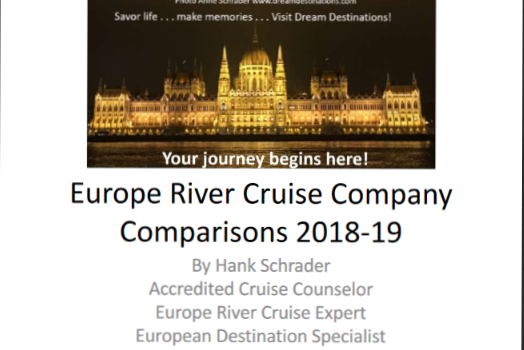So, how do you solve this problem? Let’s explore this together by defining the problem, look a little at some of the misinformation we have seen, and, how we attempt to solve this problem for you so you can obtain reliable travel information.
What is Reliable Information?
According to the Oxford Dictionary, reliable is defined as “consistently good in quality or performance; able to be trusted”.
For the travel industry, to me, this means that reliable travel information depends on the quality and the source of the data.
Quality indicates the data must be truthful, objective, fact based and useful—the content needs all these elements. Good quality information clearly differentiates between opinion and fact. Without knowing a lot about whatever you want to research, this may be difficult for the average person to determine the quality of the information.
The source may be easier to research, unless it is anonymous. Internet Searches, Travel Writers, Blog Writers, Review Sites and Personal Recommendations are all valid sources--some are consistently good in quality or performance; able to be trusted and it is often easy to learn about the author(s).
Facts about Sources of Reliable Travel Information
Internet searches may be a good source but can be manipulated by savvy marketing folks who use search engine optimization to enhance their ranking that is not in line with the value of the content.
Travel Writers, if objective, can be great sources.
Blog Writers (like me) are only as good as their knowledge and experience.
Review Sites and Personal Recommendations can be valid sources but often lack enough knowledge about what is available that the information is not comprehensive enough to make sound judgements.
According to Myles Anderson, in a 2013 study, 79% of Consumers Trust Online Reviews as much as Personal Recommendations. My guess is that since the reviewers and personal recommendations appear to not be selling anything, they are more objective to the consumer. While there may be some validity to this concept, the problem is that data can be manipulated online and it is often anonymous.
Why do we Search for Reliable Travel Information?
There is a lot of confusing travel information available—perhaps nowadays just too much. We also live in a world of Fear of Missing out (FOMO)—a lost trip chance or our friends got a better deal/trip/value—you insert the right word. It is a ripe world for advertising that might shade the truth or just be outright deceiving.
I recently read about a travel service company started by some former Amazon whizzes who are ceasing operation at the end of the year. Called the Wanderlust Society, the company “sought to help people find inspiration for trips from friends, save ideas from anywhere on the web, view potential destinations on a map and more. Kleitsch thought the company could fill a void in travel planning by offering more reliable recommendations, sourced from friends and fellow community members” according to the online article from GeekWire.
I am sorry the company is ceasing operations but the fact that they started at all is starling—they believed there just was a void in reliable travel information.
Clearly, there is a problem, if start-up companies are trying to cut through the clutter—so, how do we solve this problem?
Some Reliable Travel Information Guidelines
Here are some of the guidelines I use when I study travel information:
1. Google Search rankings may be more a result of marketing power than content reliability—if it looks like an ad disguised as fact, it probably is slanted to some degree.
2. There is lot of disinformation on the web. (Two of my favorites are—a homeless shelter got over 100 5-star ratings as a hotel and a yard shack became the hottest, most exclusive restaurant in England with a two year waiting time to dine—both fueled by hundreds of fake reviews—neither even existed as a valid business!)
3. Look for extremes in reviews—100% positive or 100% negative just does not seem reasonable to me. I always look for the middle ground—why are the praising or panning the reviewed place?
4. For unknown sources, do not accept only one source—look for additional back up. I look for pictures in blogs taken by the writer and experiences that would be hard to make up—kinda a trust by verify mentality.
5. Apply your critical thinking skills to the info—what is the date of the info, don’t rely on just star ratings, are there enough reviews to make an informed judgement, what is the source of the info, what is their website like—you get the idea—just do not accept the info without examining it with open eyes.
6. Look for industry sources that value their reputation—reputable sources back up their info with facts and solid opinions and are not influenced by their vendors.











